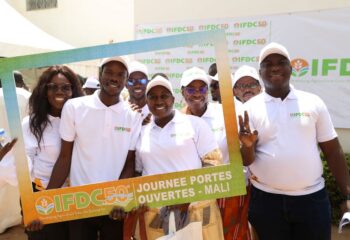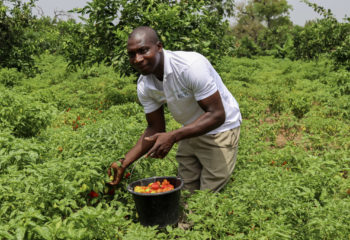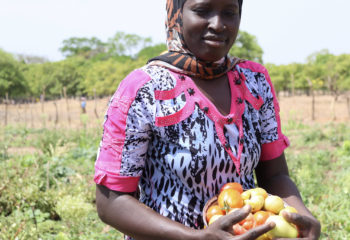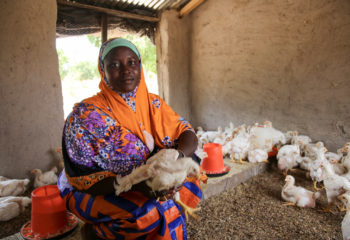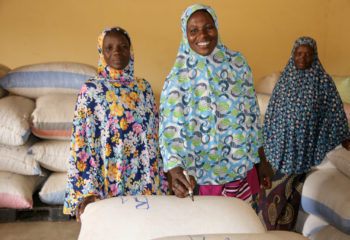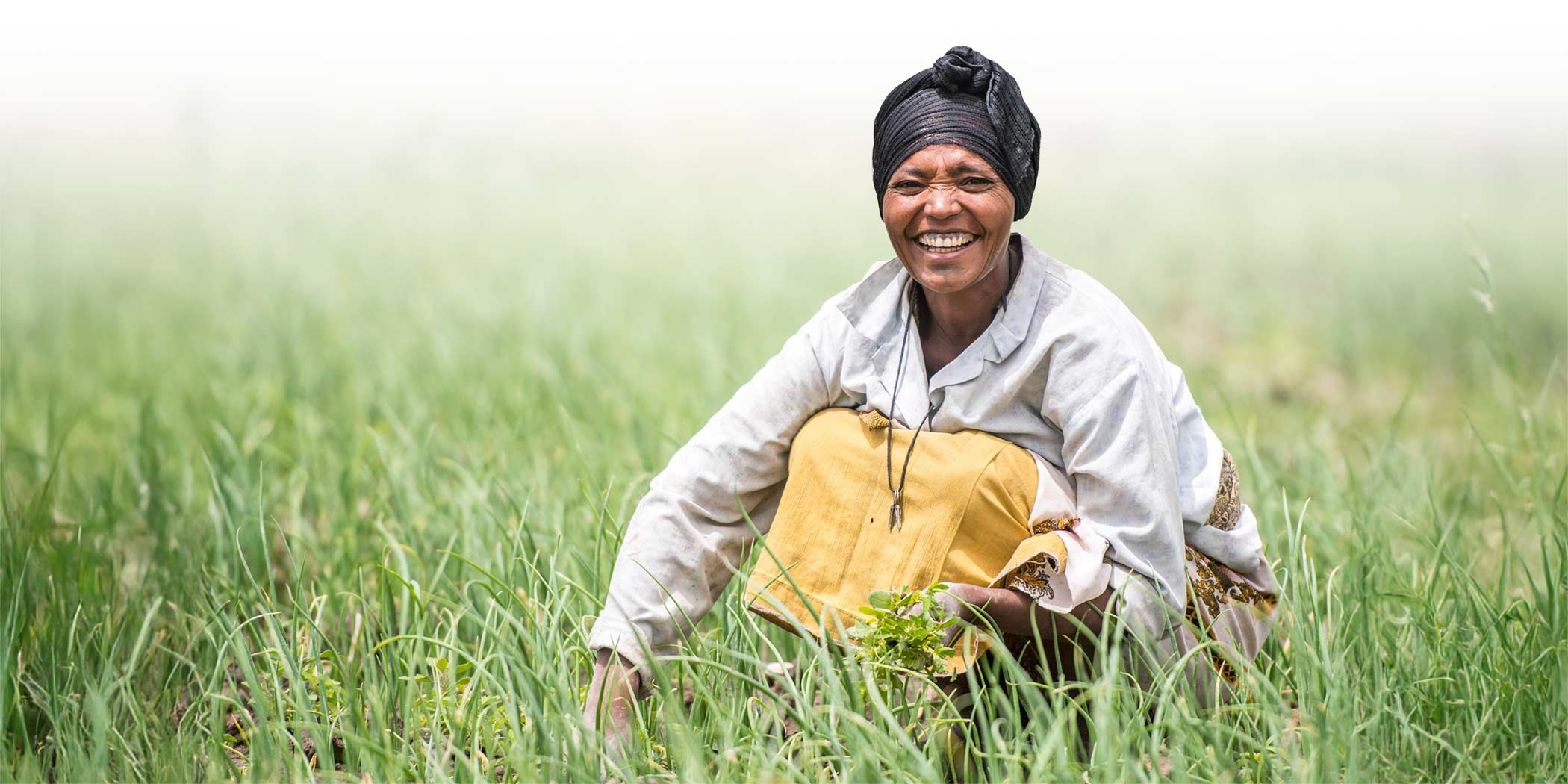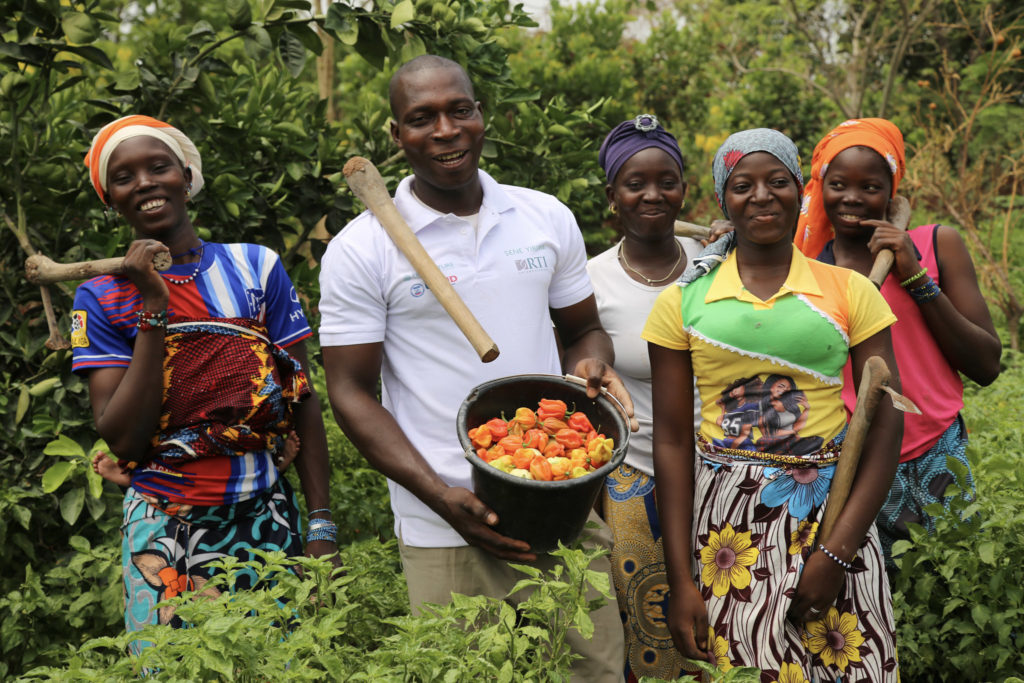
The Feed the Future Mali Sɛnɛ Yiriwa Agricultural Production Activities in Sikasso project* (2022-2025) aims to sustainably scale up the productivity of key value chains in Mali, leading to better consumption of nutritious food and resilience of farm households. This is achieved through a farmer-centered approach, which capitalizes on existing producers to increase the use of best agricultural practices, strengthen cooperatives, and ensure farmers are making data-driven decisions about production in the Sikasso sub-area.
Funded by the U.S. Agency for International Development (USAID), the Feed the Future Mali Sɛnɛ Yiriwa Agricultural Production Activities in Sikasso Project is implemented by RTI International, in collaboration with its consortium partners: Association des Organisations Professionnelles Paysannes (AOPP), Interchurch Organization for Development Cooperation (ICCO), IFDC, Institut Polytechnique Rural de Formation et de Recherche Appliquée (IPR-IFRA), North Carolina Agricultural and Technical State University, and Vétérinaires Sans Frontières (VSF).
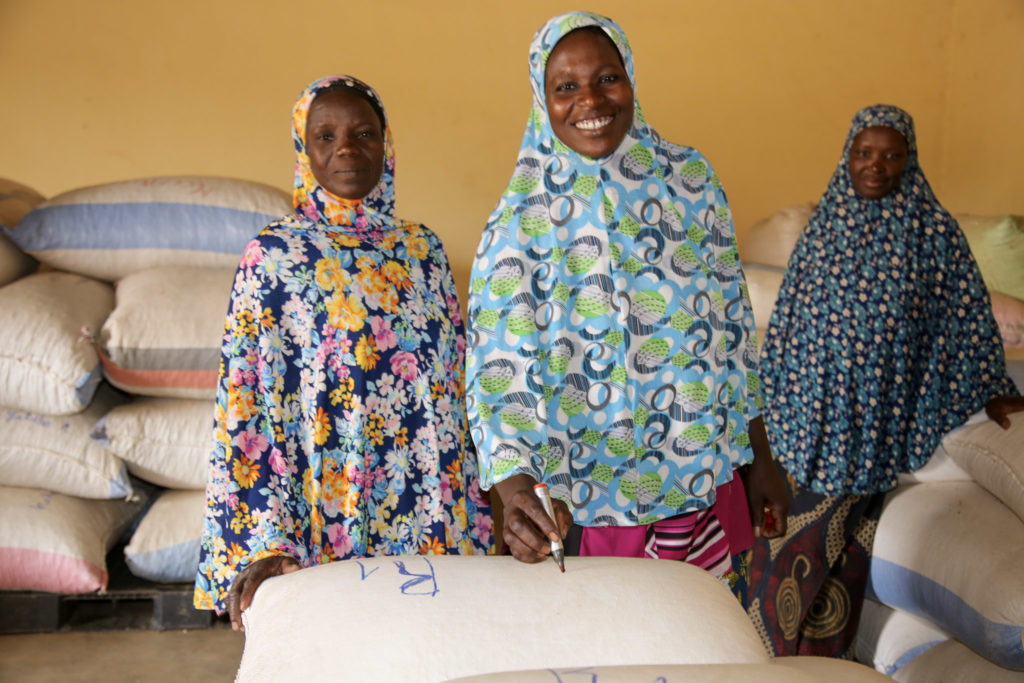
Project Objectives
The three key objectives of the Feed the Future Mali Sɛnɛ Yiriwa project are focused on:
- Strengthening cooperatives;
- Increasing and supporting the adoption of climate-smart agricultural (CSA) practices and technologies;
- Improving farmers’ decision-making capacity.
These objectives are consistent with Mali’s National Food and Nutrition Security Policy, including the Mali 2025 National Prospective Study, which aims to reduce the poverty rate from 64% to 47.5% by 2025; the Agricultural Orientation Law (LOA); the Agricultural Development Policy (PDA); the National Livestock Policy; and the National Gender Policy.
In accordance with its action plan, the project selected new Village Extension Agents (VEAs) in the areas of intervention to identify leading local producers who are able to educate and train other smallholder producers on the techniques and innovations promoted by the project. In addition, technological and thematic packages have been identified for the benefit of partner cooperatives in the Bougouni, Koutiala, and Sikasso areas.
Specific training packages on vegetable production techniques, rapid composting in piles and pits, and improved traditional poultry farming were sent to the new VEAs and partner cooperative leaders. As a result, the dissemination plots of technology packages on target crops (maize, millet, sorghum, rice, cowpea, and groundnuts) were managed with advisory support and follow-ups from the VEAs. In addition, the project conducted capacity-building trainings on improved plant and climate-resilient seed production and certification techniques, small ruminant breeding, fodder production, storage, conservation, and good harvesting and post-harvest practices for cereals and legumes.
*The Feed the Future Mali Sɛnɛ Yiriwa Agricultural Production Activities in Sikasso project is the subject of a termination notice issued by the U.S. Department of State/USAID on February 26, 2025.
Project Results
General
- Improved access to nutritious food for 32,5175 consumers.
- Improved livelihoods for 12,9383 farmers.
- Connected 2,772 SMEs to inclusive value chains.
- Created 7,721 jobs.
- Achieved nearly 33,651 ha in eco-efficient production.
- Enterprises have mobilized 2,263,695 euros.
- Using the market systems development (MSD) approach, established a system to improve access to inputs.
- Developed new products using fresh dairy milk and soy.
- Guided field visits to fertilizer deep placement (FDP) and microdosing (MD) dissemination plots.
2024
- Strengthened cooperatives, promoted climate-smart agricultural practices, and enhanced farmers’ decision-making abilities – aligning with national policies to reduce poverty and improve food security.
- Trained new village extension agents to support peer learning among smallholder farmers.
- Introduced tailored technological and thematic packages to cooperatives in Bougouni, Koutiala, and Sikasso.
2022
- Identified and elected 64 new VEAs in Sikasso, Bougouni, and Koutiala.
- Established seven technology packages and identified 12 themes to benefit the cooperatives.
- Trained 80 VEAs on market gardening, rapid heap and pit composting, improved poultry farming, small ruminant breeding, fodder production and conservation, certified plants seeds, and good harvesting and post-harvest practices for cereals and legumes.
- Set up 220 0.25 ha dissemination plots of maize, millet, sorghum, rice, cowpea, and groundnut for guided tours.


